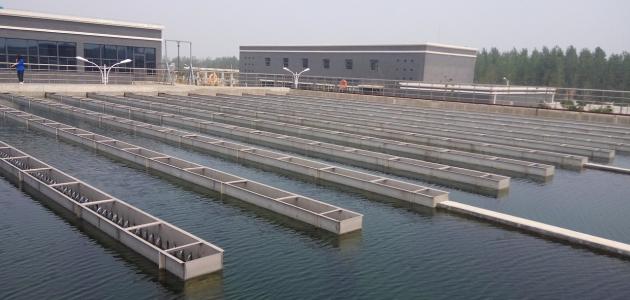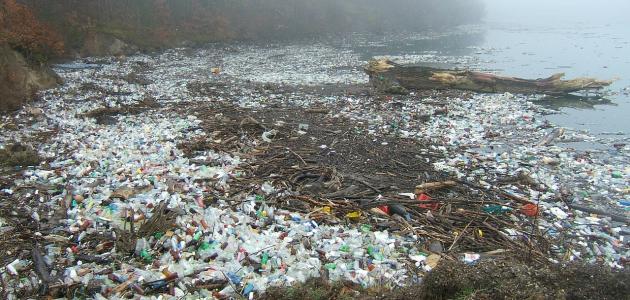Global warming solutions
The industrial revolution led to an increase in the Earth's surface temperature, and according to NASA, this increase reached about 0.9°C above its normal rate, and scientists unanimously agree that the main reason for this increase is due to the increase in greenhouse gas emissions such as carbon dioxide, methane, and nitrous oxide. In the atmosphere, as these gases trap heat inside the atmosphere, which leads to climate change accordingly, and the proportion of these gases increased clearly in the late nineteenth century due to the large use of fossil fuels in industry, transportation, energy production, and other sectors.
The International Panel on Climate Change of the United Nations (Intergovernmental Panel on Climate Change) warned in one of its reports for the year 2018 AD of the disasters that will occur if the Earth’s surface temperature rises to more than 1.5 ° C, as it will cause a rise in the surface level. the sea, the occurrence of severe climatic changes, and the loss of some entire ecosystems, so the committee stressed the need to find quick, serious and long-term global solutions; In order to reduce carbon dioxide levels in the atmosphere by 45% by 2030.
Global warming solutions
Countries and their governments play an important role in reducing carbon emissions by enacting laws and setting effective regulations in this field, such as imposing a carbon tax on factories and concerned institutions. There are important international achievements to contribute to reducing global warming, or the greenhouse phenomenon, including:
Read also:How do we keep the beach clean?Nobel Peace Prize
The Nobel Peace Prize contributes to reducing the phenomenon of global warming by encouraging individuals to spread knowledge related to the problem of climate change and the human relationship with it, and to encourage the development of solutions in order to reduce this phenomenon, and in 2007 each of the committee deserved The United Nations Intergovernmental Panel on Climate Change (IPCC) and former US Vice President Albert Arnold Gore are jointly awarded the Nobel Peace Prize for their achievements in this field.
Climate Action Summit 2019
The Climate Action Summit was held on September 23, 2019, with the aim of achieving cooperation between the participating parties to find quick and effective measures to confront the problem of climate change, by holding a meeting with leaders of world governments, the private sector, and civil society, A set of foundations and common solutions related to heavy industries, energy, and other sectors that have a prominent role in resolving this problem have been laid down, and it has been agreed to hold another summit in 2020 to renew commitments.
Kyoto agreement
Many countries began in 1995 AD to conduct negotiations to try to find solutions to the phenomenon of climate change, and two years after that, the Kyoto Protocol was concluded, which includes a group of countries that are legally bound to reduce greenhouse gas emissions according to agreed bases and objectives, and the agreement was divided into two periods: the first period began in 2008 AD and continued until 2012 AD, while the second period began in 2013 AD and is supposed to end by the end of 2020 AD, and currently the agreement includes 192 parties.
Read also:The importance of preserving the environmentParis agreement
A conference was held in Paris in 2015 AD, and through the United Nations Framework Convention on Climate Change (UNFCCC), a historic agreement was reached - the Paris Agreement - aimed at intensifying and accelerating procedures Which helps to combat climate change and reduce the proportion of carbon dioxide in the atmosphere. The Paris Agreement was distinguished from other activities by uniting all countries, including developing countries, in the issue of climate change and finding common solutions to combat it. The agreement also aims mainly to enhance the response of all countries to confront The risk of climate change by trying to prevent the Earth's surface temperature from rising to more than 1.5°C above normal.
individual solutions
Many individual practices can be taken to contribute to reducing greenhouse gas emissions, and thus reducing global warming, and the following are mentioned:
- Recycling: The recycling process helps to reduce greenhouse gas emissions, as about 1089 kg of carbon dioxide gas can be saved annually if half of the household waste is recycled.
- Reducing the use of the air conditioner: The use of air conditioners can be reduced by adding insulating materials to the walls of buildings, and isolating doors and windows, which contributes to maintaining a moderate temperature inside the building at all times, and reduces the amount of energy required to heat and cool the building, thus reducing heating costs to 25%. Programmed thermostats can be used on air conditioners, which save about 907 kg of carbon dioxide annually.
- Use of energy saving lamps: Replacing energy-saving lamps such as fluorescent lamps with ordinary incandescent lamps helps to save energy, as fluorescent lamps consume two-thirds less energy than incandescent lamps, and they emit 70% less heat than ordinary incandescent lamps, and they last up to 10 times longer than ordinary lamps In the event that fluorescent lamps are replaced with regular lamps in every home, about 40.8 billion kg of greenhouse gases will be eliminated from the atmosphere, and this is equivalent to the disposal of 7.5 million cars from the streets.
- Use of energy-saving products: The use of energy-saving household electrical appliances helps reduce greenhouse gas emissions.
- Use less hot water: This is done through a number of procedures, such as adjusting the electric water heater to a certain temperature and fixing it to that temperature, and using shower heads with a low flow, which helps to save hot water, and these practices contribute to saving approximately 159 kg of carbon dioxide annually, and on the one hand On the other hand, the use of warm or cold water in washing instead of hot water reduces the need to heat the water, and thus saves the energy needed to heat it, and this practice contributes to reducing the emission of about 227 kg of carbon dioxide annually if it is applied in most homes.
- Turn off unused devices: Turning off unused electrical and electronic devices such as computers, televisions, and air conditioners, turning off lamps in unused rooms, closing the water tap while brushing teeth, and using the appropriate amount of water while washing the car contributes to saving electrical energy, and thus reducing global warming.
- Encouraging others to conserve energy: This is done by exchanging information related to this field - such as the recycling process and appropriate ways to save energy - with neighbors, relatives, and friends. Information can also be exchanged with colleagues at work, and employees are encouraged to follow appropriate ways to save energy.
- Reducing the use of vehicles: Reducing vehicle driving and using bicycles and walking reduces greenhouse gas emissions and saves gasoline at the same time. It is important to ensure the efficiency of the vehicle and the effectiveness of the tires before driving; Because this helps to consume less gasoline to cover the same distance, and saving 3.78 liters of fuel contributes to reducing about 9 kg of carbon dioxide annually.
- Avoid using products with a lot of packaging: Reducing the amount of waste by 10% saves about 544 kg of COXNUMX.
- Use of thermostats: Installing thermostats on air conditioners at a certain temperature helps save 907 kg of carbon dioxide annually.
- Corporate commitment to sustainable sourcing: Companies can contribute to reducing greenhouse gas emissions by committing to sustainable sources, for example, IKEA is an inspiration for how to use sustainable sources in making its wood products, and Apple is another example of how to take advantage of renewable energy sources.
- Planting trees: Tree planting is an important measure to reduce global warming, as it releases oxygen gas into the atmosphere and absorbs carbon dioxide, and one tree can absorb approximately one ton of carbon dioxide during its lifetime, so it is important to reduce deforestation Great interest in the farming process and making it more efficient.
- Benefit from renewable energy sources: The use of renewable energy, such as wind energy, solar energy, thermal energy, and others, contributes to reducing air pollution, in addition to its reasonable cost and ability to meet the world's energy needs while preserving the environment.
Adopting these practices will lead to a reduction in energy use, which in turn will lead to a reduction in the consumption of fossil fuels whose combustion results in greenhouse gas emissions, and thus contribute to reducing global warming.
Read also:The danger of some materials used in our daily life on the environmentSolutions to the problem of climate change
There are a number of factors that contribute to an increase in greenhouse gas emissions in the atmosphere, and thus climate change, including: deforestation, the use of agricultural lands in different ways, various agricultural activities, and the extraction and combustion of fossil fuels. In general, there are two basic methods that contribute to solving the problem of climate change. climate, namely:
- Reducing greenhouse gas emissions of all kinds, such as methane and carbon dioxide.
- Cleansing the atmosphere of carbon dioxide by allowing the various natural ecosystems, such as forests and oceans, to perform their work in absorbing carbon dioxide, as these systems are described as carbon sinks, by preventing deforestation, reducing From destroying animal habitats, whether in oceans or other systems, and encouraging the cultivation of evergreen trees.









